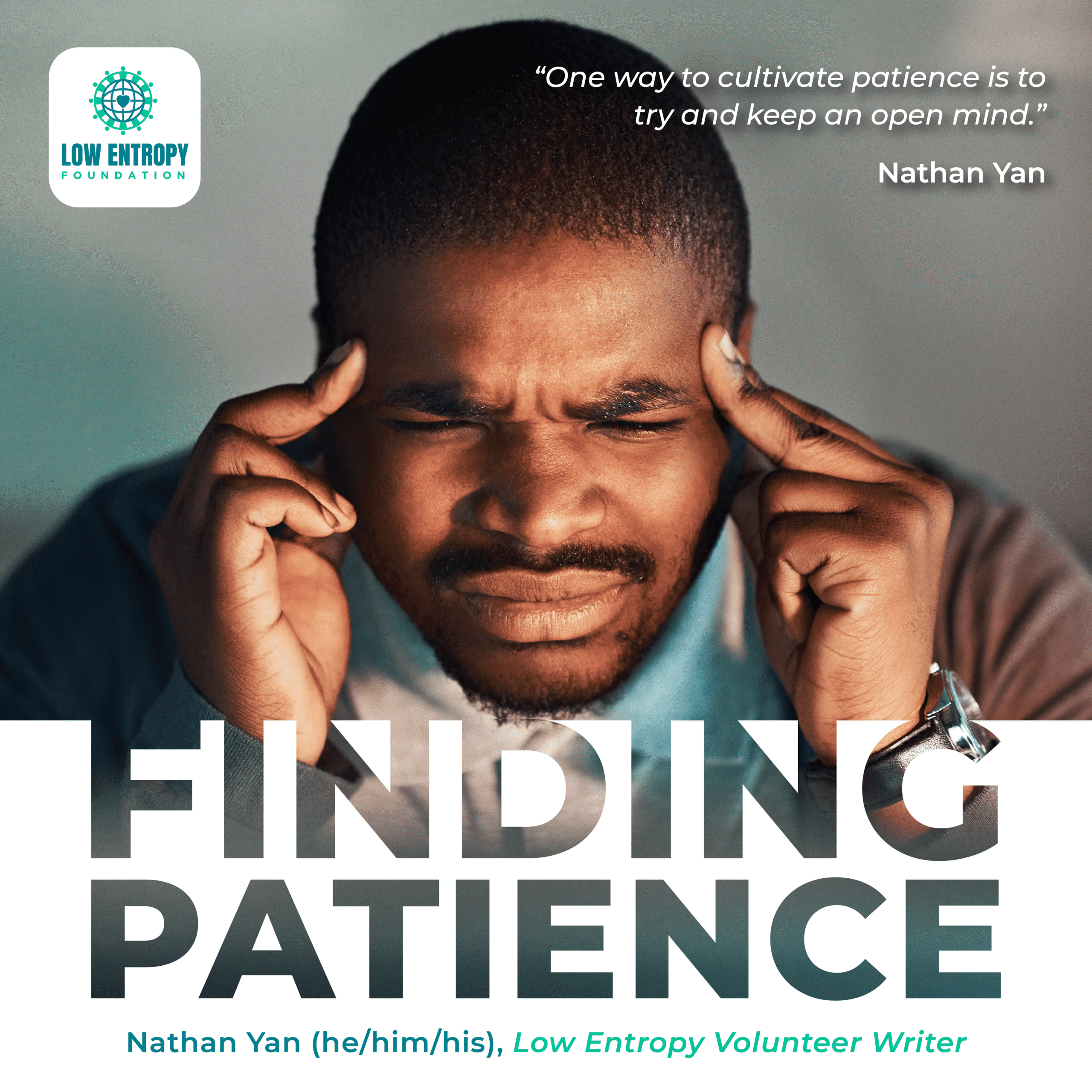Nathan Yan (he/him/his), Low Entropy Volunteer Writer
If you’ve ever worked in fast food, retail or customer service, then you’ve encountered plenty of frustrating people. There are plenty of traits or actions that could make people frustrating to deal with. These people could be staunchly opposed to everything you say and act with a sense of self-righteousness as if they are right all the time, they could simply be ignorant to facts, or they could refuse to change obviously harmful habits and behaviours. Throughout one’s life, there will be plenty of encounters with these frustrating situations or people, and a common response to these situations is to confront the person directly. However, this strategy is often ineffective, and only works to exacerbate the conflict. The more effective strategy is the inverse, which is to not engage and try to cultivate patience.
One way to cultivate patience is to try and keep an open mind. Only some frustrating people are trying to be frustrating. In the majority of cases, situations that are frustrating are the result of a misunderstanding. For example, an argument that you find particularly frustrating because the other person doesn’t acknowledge what you say could be the result of that person simply forgetting a previous point you made. If you view the frustrating person as malicious, you are more likely to perceive their behaviour as a direct attack against you. You would see annoying behaviour as an intentional attempt to make you upset, or you may interpret certain language as directly assaulting you. As a result, you may tend to become angry, which makes it much more difficult to stay patient and not escalate the confrontation.
Another way to make cultivating patience easier with a frustrating person is to not engage with a frustrating person while upset or annoyed. While in either of these states, you are more likely to lash out, make logical mistakes or misunderstand others. Not only will these issues make you feel worse later on, they will also exacerbate the argument or confrontation you may be having with the frustrating person. As an example, if your boss is being frustrating and forcing you into an obviously uncomfortable situation, even if you have a strong urge to complain, you shouldn’t. If you try to complain while annoyed, you might make a comment in the heat of the moment that could be seen as aggressive, such as implying your boss is dumb for making that decision. These criticisms should still be made, but they should be made when you are more clear-minded and can calmly think about your next actions. Furthermore, if you try to complain while annoyed, your boss’s response might be misinterpreted by you and you could perceive the situation as even more frustrating. Either of these effects would escalate the situation and make it much more difficult to handle. So if you want to make it easier to maintain patience, you need to keep the situation manageable by not taking action immediately and by calming down.
One more way to cultivate patience during a conflict with a frustrating person is to understand that you may have to concede. In a conflict with a frustrating person, if you try to “win” the conflict by having the frustrating person completely stop the behaviour that is frustrating, you will likely become more frustrated, as people often don’t back down in a disagreement. The backfire effect is a principle that explains this. It states that, when presented with information that disproves a person’s idea, people tend to affirm their original idea. This shows that instead of trying to get a frustrated person to agree with your opinion, it is better to compromise. An example of this is trying to disprove misinformation online. In these situations, it may be strategically sound to concede to some of the arguments presented by the other side, just to avoid a more frustrating position. This way, it is much easier to resolve conflict and maintain patience instead of risking an outburst.
Confrontations with frustrating people are a common part of life that everyone will have to deal with eventually. In these situations, it is essential to maintain patience so as to not risk escalating the situation, and the best way to accomplish this is to not engage directly. One could take time away from the frustrating person, try to understand their view or even partially agree with them to lessen the conflict. Despite how frustrated you might be, you must always remember to be patient.
—
Hi my name is Nathan Yan, I am a student at David Thompson Secondary School. I enjoy activities like debate, computer science and chess, and my favourite subject is math.

